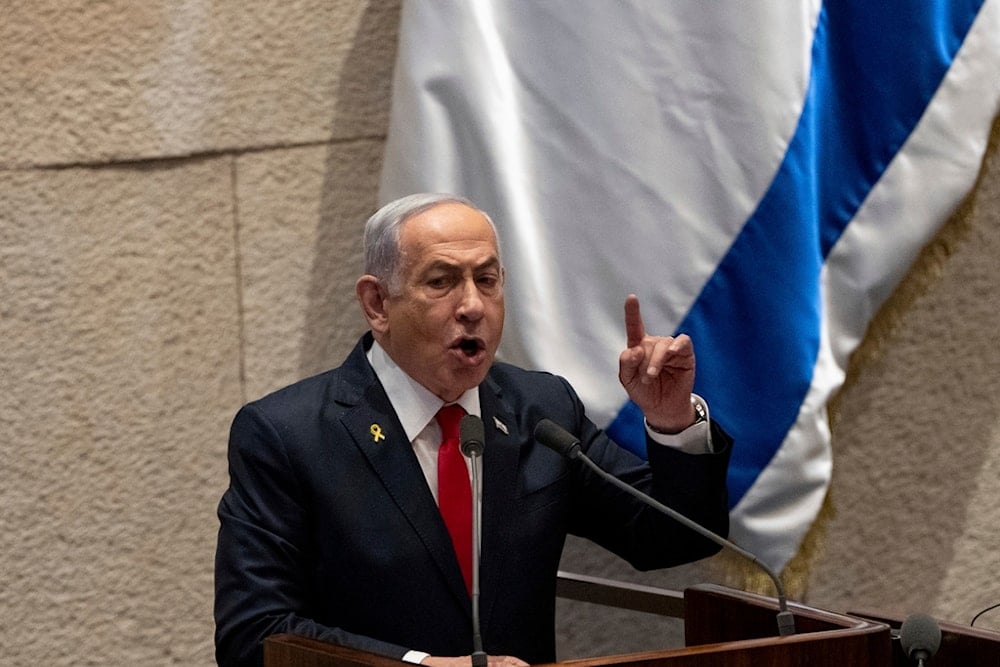Netanyahu testimony to be moved underground over security threats
It was determined that the al-Quds court, which lacks adequate bomb shelters, is unsuitable for the premier's testimony.
-

Israeli Prime Minister Benjamin Netanyahu addresses lawmakers in the Knesset, in occupied al-Quds, on Monday, Nov.18, 2024. (AP)
Israeli occupation Prime Minister Benjamin Netanyahu's upcoming testimony in his corruption trial will be relocated from occupied al-Quds to an underground, fortified hall at the Tel Aviv Magistrate’s Court, confirmed the Courts Administration.
This change follows consultations between the courts and the Shin Bet Security Agency regarding the safety of Netanyahu during his testimony, which is scheduled to begin on December 10.
A court statement revealed that the Shin Bet provided “top secret” information about threats to Netanyahu arising from the ongoing war, including intelligence from the Israeli military.
As a result, it was determined that the al-Quds court, which lacks adequate bomb shelters, is unsuitable for the premier's testimony.
While the Shin Bet proposed an alternative office building in occupied al-Quds, the courts found it unsuitable for the legal proceedings. The Tel Aviv location was ultimately deemed the most secure and appropriate by both the court and the Shin Bet.
Last week, Netanyahu submitted a request to the court asking that by Monday, the Shin Bet and the Courts Administration provide the judges with details of the security arrangements for his testimony, specifying the number of hours per day and the number of days per week considered safe for him to be in court.
Initially scheduled to begin testifying on December 2, Netanyahu's defense team requested a 15-day delay due to insufficient preparation, citing his demanding schedule leading multiple war fronts. The court then granted an eight-day postponement, rescheduling the testimony for December 10.
Netanyahu is facing charges in three corruption cases—Case 1000, Case 2000, and Case 4000—involving allegations of bribery, fraud, and breach of trust.
In Case 1000, he is accused of accepting extravagant gifts from a billionaire in exchange for favors; Case 2000 centers on alleged negotiations with a newspaper publisher for favorable coverage; and Case 4000, the most serious, claims he provided regulatory benefits to a telecom giant in return for positive media coverage from its news outlet.
He was indicted in January 2020, and a trial covering all three cases commenced in May of that year.
The Israeli prime minister has repeatedly denied any wrongdoing, claiming the charges are part of a fabricated witch hunt orchestrated by the police and the state prosecution.
Read more: Netanyahu slams recusal petition, says it politicizes judicial system

 3 Min Read
3 Min Read








